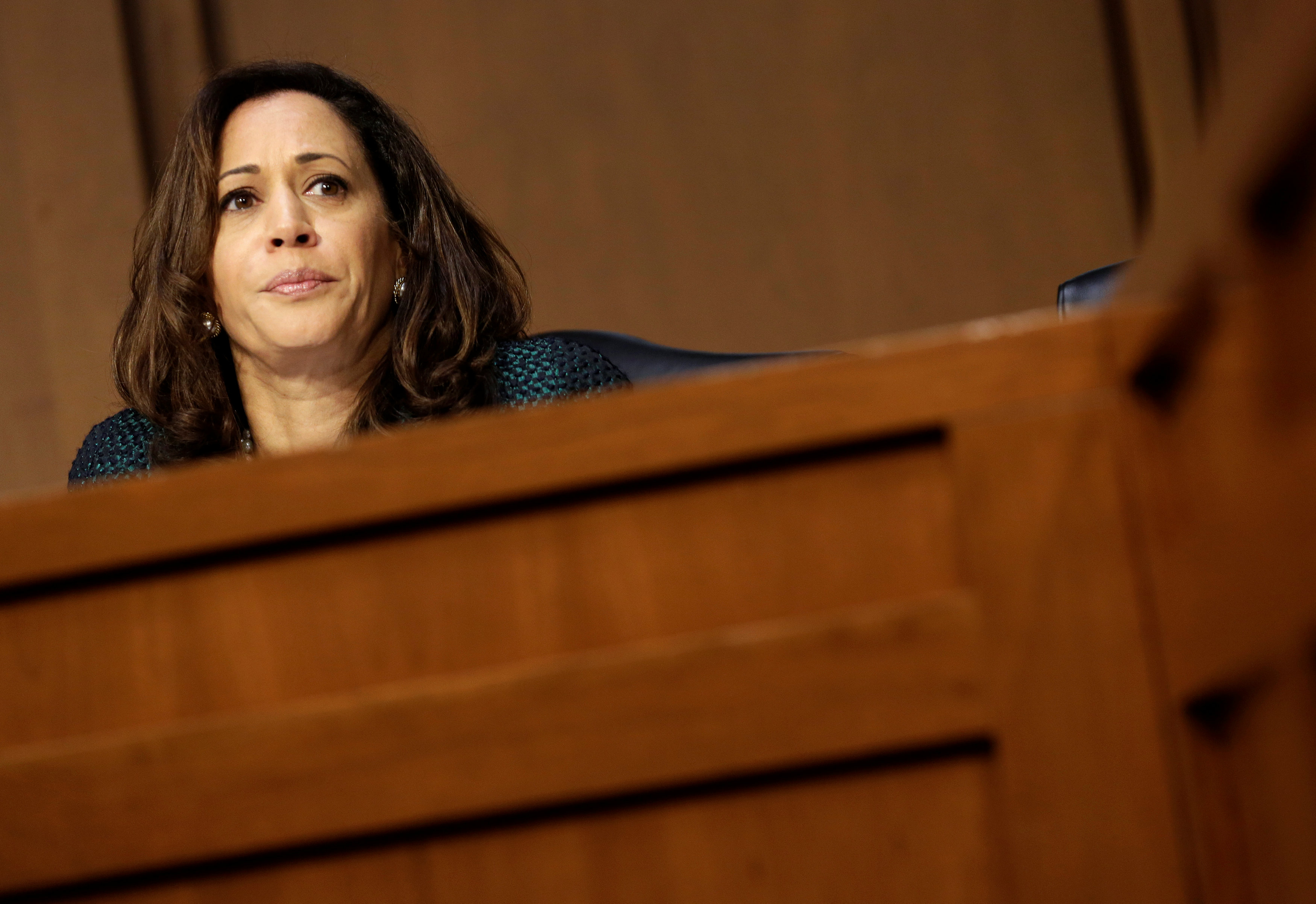
US
Patrick Smith writes about Trump’s tendency to embrace Saudi Arabia’s royal family:
Trump mistook personal relations for policy—just as he has with Xi Jinping and the Chinese. Having no coherent Middle East strategy, Trump was wowed by the Saudi royalty and stumbled into backing them just as the kingdom targeted Qatar for its ideological missteps and turned up the heat in its face-off with Iran. This is nowhere near where the United States needs to be in a region brewing with crises. Compounding Washington’s predicament, it’s not clear who’s calling the shots on Middle East policy.
Ayaan Hirsi Ali and Asra Nomani are disappointed Kamala Harris didn’t ask them any questions about religion when they testified in the Senate:
No, what happened that day was emblematic of a deeply troubling trend among progressives when it comes to confronting the brutal reality of Islamist extremism and what it means for women in many Muslim communities here at home and around the world. When it comes to the pay gap, abortion access and workplace discrimination, progressives have much to say. But we’re still waiting for a march against honor killings, child marriages, polygamy, sex slavery or female genital mutilation.
Israel
Mazal Mualem uses some strong words to describe the changes going over the Israeli police force:
The recent series of events shows that the gatekeepers of Israeli democracy — the commissioner of police, the state attorney and the attorney general — are abusing their power to launch an unwarranted and undeterred attack on basic civil rights, such as freedom of expression and the right to demonstrate. And there is no one to raise a red flag and stop this shipwreck from occurring.
Liel Leibovitz is outraged at how Israeli cuisine is done in New York:
If you’re trying to understand Brexit, then, or the rise of Donald Trump, don’t bother reading The Economist or the Times. Just go to the nearest Israeli restaurant and order the masabacha. That paltry petecure on your tongue is the taste of globalization, a logic that believes it can produce more or less the same flavors more or less anywhere in the world. Resist it. Our palates are precious, and they should demand nothing less than what is ours by right, the sweet and distinct and perfect tastes of home.
Middle East
Quentin Sommerville and Riam Dalati present some fascinating photos and documents showing the “secret lives of ISIS fighters”:
The pictures on it will lead us to uncover fragments of the lives of the dead men, the deep camaraderie among them, their brutality, and their journey through the battle for Mosul. And it will cast light on the dead fighter in the shadows. Who was this young man and what secrets of Islamic State did he leave behind?
Kristian Coates Ulrichsen takes a look at how Saudi Arabia has been targeting the US government with its anti-Qatar campaign:
All along, a key objective of the anti-Qatar campaign appears to have been winning the battle for hearts and minds in Washington, and, in particular, within a White House deemed sympathetic to the Saudis and Emiratis. One imagines that the articles associating Qatar with Iran and various Islamist groups across the Middle East were tailored with Trump officials like James Mattis and H.R. McMaster in mind—their hawkish views are aligned closely with those in Riyadh and Abu Dhabi. That the media campaign against Qatar began two days after Trump’s visit to Riyadh may have encouraged officials in regional capitals to believe that the White House would take sides in the dispute.
Jewish World
Marat Greenberg writes about Jewish themes in the work of Nobel-laureate poet Joseph Brodsky:
Jewishness is an ongoing theme in Brodsky’s early poetry of the 1960s, in which he speaks of a Jewish cemetery on the outskirts of Leningrad and imagines his future “Jewish gravestone.” His “Isaac and Abraham” is a beautiful, tortured and complex midrash on the binding of Isaac. Brodsky transplants the biblical patriarchs onto the Soviet landscape, making the relationship between Abraham and Isaac symbolic of the rift between Russian-Jewish fathers and sons, who are burdened by the loss of Judaism as well as historical traumas both near and distant. The poem reveals Brodsky’s familiarity with Hebrew scripture as well as the kabbalah. In his later poetry, the explicit Jewishness all but disappears in accordance with his goal to become the greatest Russian poet of his era and instead becomes a powerful undercurrent.
Ben Harris examines the story of Jews and the Trans-Atlantic slave trade:
Jacob Rader Marcus, a historian and Reform rabbi, wrote in his four-volume history of Americans Jews that over 75 percent of Jewish families in Charleston, South Carolina; Richmond, Virginia; and Savannah, Georgia, owned slaves, and nearly 40 percent of Jewish households across the country did. The Jewish population in these cities was quite small, however, so the total number of slaves they owned represented just a small fraction of the total slave population; Eli Faber, a historian at New York City’s John Jay College reported that in 1790, Charleston’s Jews owned a total of 93 slaves, and that “perhaps six Jewish families” lived in Savannah in 1771.























 More news and opinions than at a Shabbat dinner, right in your inbox.
More news and opinions than at a Shabbat dinner, right in your inbox.